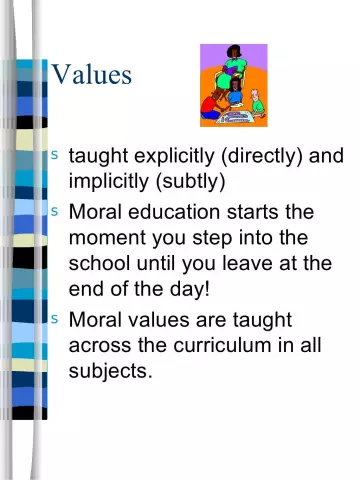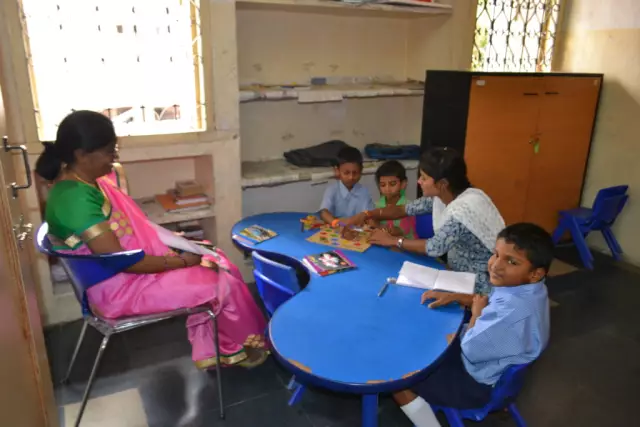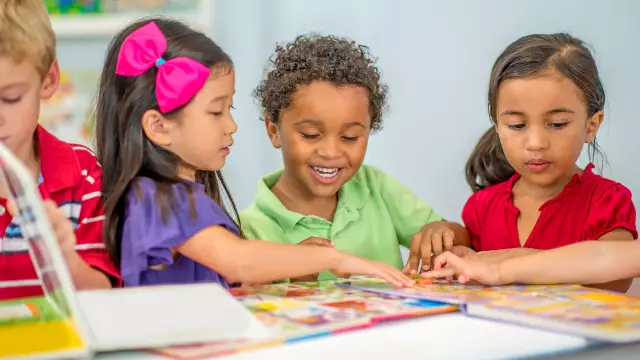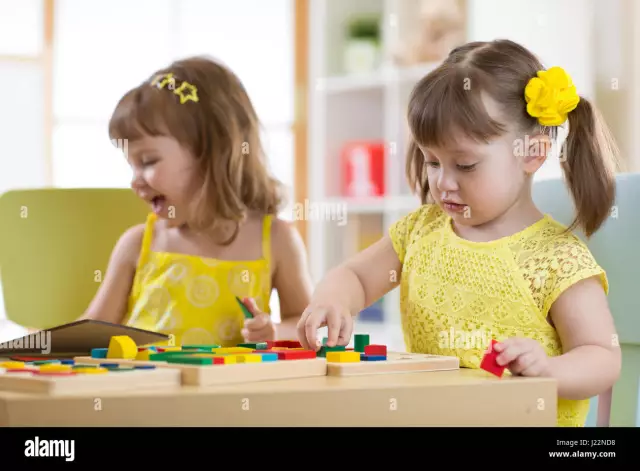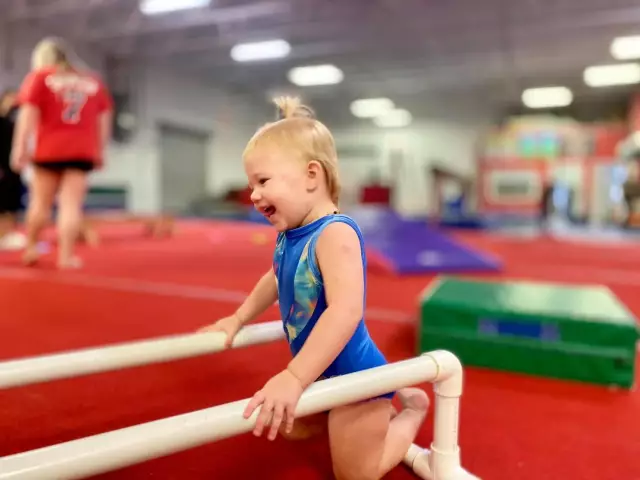- Author Rachel Wainwright wainwright@abchealthonline.com.
- Public 2023-12-15 07:39.
- Last modified 2025-11-02 20:14.
Preschool children - moral education

Morality is the internal setting of a person to act in accordance with conscience and free will, the internal requirements of an individual to himself. Also, morality is understood as a set of norms of behavior of each person in society, the inner qualities of a person and their expression, which determine his behavior in society. Moral education is the process of forming a harmonious personality, the development of an integral value-semantic dominant in preschool children. Moral education is one of the most important stages in the upbringing of a child, necessary for his personal development in society. This process transfers to the child a system of generally accepted fundamental values that determine the relationship of people in society, in the family, as well as principles and norms based on the concepts of good and evil, truth and lie, positive and negative in a global sense. What are the main means and methods of moral education of preschoolers? What is the role of moral education of preschoolers in the family?
The main aspects of moral education of preschool age
The relevance of the problem of moral education is due to the crisis of modern society, in which the erosion of moral norms, the importance of the institution of the family, spiritual values has taken place, which significantly complicates the path of personal development of a preschool child. Moral education is designed to contribute to the formation of a harmonious personality, aware of the norms and values that determine the foundations of relations between people in society.
Modern frivolous methods of raising children contribute to the crisis of society's morality, within the framework of which the child receives the basics of moral education outside the family through the means imposed by a demoralized society (for example, computer games that develop selfishness and cruelty).
Why should moral education begin at a very early age? During this period, the child is maximally open to emotional experience and empathy. The child takes the words and actions of adults for granted, without questioning them, which happens at an older age, when a child learns to analyze words and actions, compare experiences and draw certain, not always correct conclusions. The experience gained by young children will later move into the category of proper, true, canonical, not questioned.
Moral education in preschool age is realized through a system of methods and means, but the main source of moral education and the formation of a harmonious personality of a child is his family. An auxiliary mechanism for the implementation of the moral education of preschoolers is kindergartens, whose role is to correct the mistakes of raising a child in a family.
The main methods of moral education of preschoolers
Moral education of preschoolers is a complex process of forming the child's beliefs and value system, implemented through certain methods, which include:
- Persuasion and Conversation;
- Motivation for action;
- Appealing to sympathy and empathy;
- Promotion;
- Punishment.
In preschool age, the child does not yet realize what is good and what is bad, but he is as open as possible to the emotional perception of the situation. Therefore, in the early period of moral education of preschoolers, standard methods are ineffective.
In the process of upbringing morality in a child, many parents assign the main role to the mechanisms of reward and punishment, misinterpreting these methods, reducing them to material incentives and physical punishment or material deprivation. As practice shows, this tactic is also ineffective in the long term, since physical and material deprivation is a manifestation of external moral control for preschool children. Moral education is designed to stimulate the manifestation of internal encouragement (oneself) and internal deprivation (punishment - an unauthorized refusal of encouragement, good).
Basic means of moral education of preschoolers
The thinking and imagination of a preschool child, whose moral upbringing is realized through a certain system of means, are distinguished by extreme concreteness, therefore they need clear, understandable forms and symbols to understand such abstract concepts of moral principles as kindness, loyalty, gratitude, responsiveness, love, beauty, etc. others. Among the main means of moral education of preschoolers are:
- Fairy tale;
- A game;
- Creative task, labor, human activity;
- Nature;
- Communication with both peers and adults;
- The collective - the children's environment is one of the important means of moral education of preschoolers, allowing the child to develop and express his individuality within the framework of a specific society governed by its own laws and norms. This is one of the necessary mechanisms for educating collectivism, which cannot be realized in any other conditions. Harmonious development of the individual is impossible without a team, since a person is a social being, living in society and being a part of it. The upbringing of collectivism in a child must inevitably overcome the contradiction - the suppression of the personality by the collective. Overcoming this problem on his own will allow the child to learn how to live and develop in society in the generally accepted framework of norms and morality.
These means of developing morality in a child are accessible and easily applicable in practice, both in terms of raising a child in a kindergarten and in a family.
The role of moral education of preschoolers in the family
The foundations of moral education of preschoolers are implemented in the context of the family. A child, like a small imitator of adults, copies the behavior of parents, adopts their tactics of dealing with each other and with other people in society. Parents should realize that it is impossible to bring up a harmonious, highly moral person in an unhealthy family atmosphere in which disrespect, selfishness, laziness, and deception prevail.

The family is the main environment for the child to gain experience and knowledge. Kindergarten and other educational institutions are designed only to correct the mistakes parents made in the upbringing of preschool children. The moral upbringing of a child in a family should be implemented with the maximum respect for his personal dignity. The formation of a child's moral behavior should not be accompanied by suppression of his initiative, the manifestation of personal qualities.
For a child of preschool age, moral education is realized through the prism of family relations, which should become that natural example to follow, inheriting which the child could become a moral member of society.
For a preschool child, moral education in the family is the basis for the formation of his personality.
Found a mistake in the text? Select it and press Ctrl + Enter.

